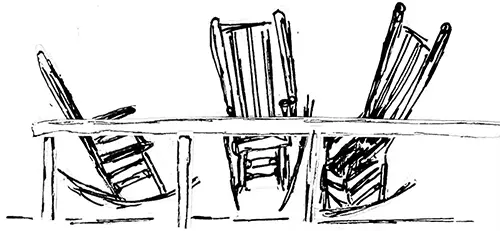The Nightstand 453
Faith The Size of a Mustard Seed: A Review of Katy Carl’s As Earth Without Water
As Earth Without Water got me thinking about the mystery of seeds, the mystery of faith, and the mystery of Divine action in the world. The novel is not about…
What Has Postliberalism to do with Jerusalem? A Review of A World After Liberalism
Henry George reviews A World After Liberalism, by Matthew Rose.
Taking (Democratic) Control of One’s Own Traffic
[Cross-posted to In Medias Res] Wichita, KS. That Charles Marohn is a friend to localist movements across the United States and beyond is indisputable. It’s not just that he has…
Lonely in the Center
Hassler and McDonagh conclude their stories with the hope that, in the absence of the clergy, faithful everyday Christians can rebuild the lost soil of local culture through faith and…
We the Corporations: A Review
Corporate rights was not a spontaneous development but the result of a sort of corporate civil-rights movement. Through litigation (generally well-financed) over two centuries, various corporations won decisions by which…
Review: The Soul of The American University Revisited
As our society considers higher education in the twenty-first century, the best way to decide what universities should be is not to gaze into the future, but to study the…
A Review of Verlaine Stoner Mcdonald’s The Red Corner
In her 2010 book, The Red Corner: The Rise and Fall of Communism in Northeastern Montana, Verlaine Stoner McDonald resurrects the surprising but largely forgotten episode of agrarian radicalism in…
Life and Death in the Forest: A Review of Finding the Mother Tree
Simard concludes that all of the natural world is interconnected and her conclusion is particularly poignant as she points out that the hard-won insight of her decades of research is…
“We Hide behind the Tomatoes”: A Review of On Common Ground
Community Land Trusts, at their best, are less about development and more about stewardship, creating just places for the long-term. CLTs are thus the ultimate preservationists, the developer/landowner who never…
“Magically Turning White”: A Family Story of Slavery, Racism, and Redemption
Mark Clavier describes coming to terms with the fact that he is a white Southerner descended from enslaved Africans who subsequently became slave-owners. Reflecting on an ancestry containing triumph and…
The Unreproducible Society
We justify our choices as the price of innovation, of progress, of efficiency. We tell ourselves we can’t afford to do anything else. We even tell ourselves it’s for the…
Living In the Myth: A Review of Jason Stacy’s Spoon River America
Benjamin Myers reviews Spoon River America: Edgar Lee Masters and the Myth of the American Small Town by Jason Stacy. Stacey explores the changing and contested myth of the midwestern…
Clarkson’s Farm, a Folly Worth Watching
By the end of season one of Clarkson's Farm, Clarkson is still not an expert on anything farming related, but he is learning all the time, including about the area…
Sport for the Sake of Success: A Review of Little Platoons
Feeney’s book is a helpful antidote to the “go to college at any cost” mindset. But more importantly, it examines how this mindset can corrupt the forms of association that…
Anyone Living Anywhere: The Challenge of My Vertical Neighborhood
Milton Friesen reviews My Vertical Neighbourhood, Linda’s McGibbon’s xperience as a newcomer to a high-rise condo in Toronto. She actively explores what it means to be a neighbour in the…
A Wayfinding Approach to Freedom from Sebastian Junger
Elizabeth Stice reviews Sebastian Junger's new book, Freedom. The new book is a product of a roughly 400-mile hike Junger took with other men processing their war experiences. Junger's approach…
Regarding Mutualism, Cooperativism, and Other (Interstitially) Anti-Capitalist Alternatives
Popular discourse in the United States today—as well as in many places around the world—hasn’t been so open to alternatives to the liberal capitalist mainstream for close to a century.
Finding Arcadia: The Garden in the Cosmos in Latin Literature
Paul Krause examines the politics of Latin literature and discovers a desire for peace and joy, a peace and joy found in an intimate environment of beauty which the poets,…
Watching Movies and Wondering about Metaphysics in an Anxious Age
Casey Spinks muses on zombie shows, Pixar movies, Scorsese films, metaphysical realism, and the philosophical fate of modern culture in his review of Age of Anxiety: Meaning, Identity, and Politics…
Remembering Our Names After the Fall
Rural Rebellion by Ross Benes, examines the changing politics of rural Nebraska from the perspective of a native son living in Brooklyn. Nebraska is a cycle of poems by Kwame…
Reading with Our Hearts: A Review of Enjoying The Bible
Enjoying the Bible is a book about beholding the deep riches of beauty in Scripture and allowing its literary elements to shape our humanity. A literary approach to Scripture teaches…
Teaching (or Cultivating) Sustainability (or Inhabitance), Ten Years On
As utopian as "religious education" and "local food tours" may seem, that doesn't mean we can't approach them with a hope for real formation work in mind.
Organized Leisure and the Construction of American Community
Was the experience of “community” in an Ohio town during Ervin’s lifetime fundamentally more compelling and authentic than has been possible after the post-war economic boom? Or should Ervin’s passion…
Dedication: In Praise of the Long-Haulers
Pete Davis lauds the “long-haulers,” people who long ago ignored the chorus which urges our younger people to “keep your options open,” and to keep building up for your Main…











